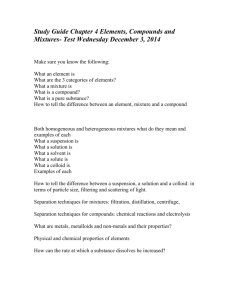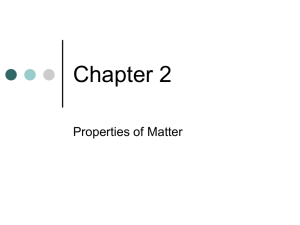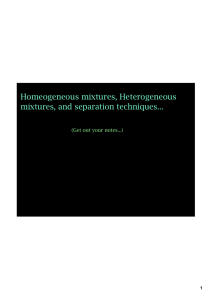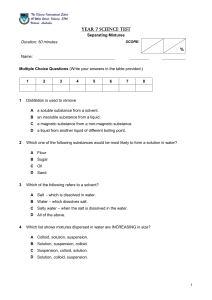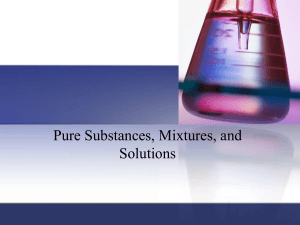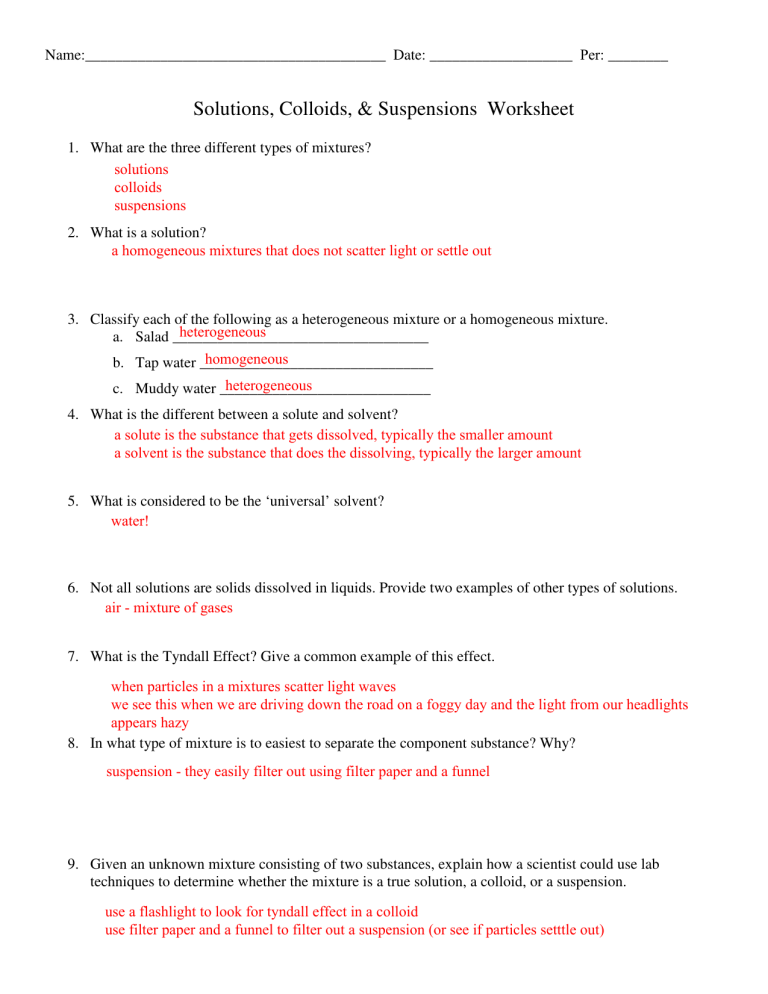
Name:________________________________________ Date: ___________________ Per: ________ Solutions, Colloids, & Suspensions Worksheet 1. What are the three different types of mixtures? solutions colloids suspensions 2. What is a solution? a homogeneous mixtures that does not scatter light or settle out 3. Classify each of the following as a heterogeneous mixture or a homogeneous mixture. heterogeneous a. Salad __________________________________ homogeneous b. Tap water _______________________________ heterogeneous c. Muddy water ____________________________ 4. What is the different between a solute and solvent? a solute is the substance that gets dissolved, typically the smaller amount a solvent is the substance that does the dissolving, typically the larger amount 5. What is considered to be the ‘universal’ solvent? water! 6. Not all solutions are solids dissolved in liquids. Provide two examples of other types of solutions. air - mixture of gases 7. What is the Tyndall Effect? Give a common example of this effect. when particles in a mixtures scatter light waves we see this when we are driving down the road on a foggy day and the light from our headlights appears hazy 8. In what type of mixture is to easiest to separate the component substance? Why? suspension - they easily filter out using filter paper and a funnel 9. Given an unknown mixture consisting of two substances, explain how a scientist could use lab techniques to determine whether the mixture is a true solution, a colloid, or a suspension. use a flashlight to look for tyndall effect in a colloid use filter paper and a funnel to filter out a suspension (or see if particles setttle out)
